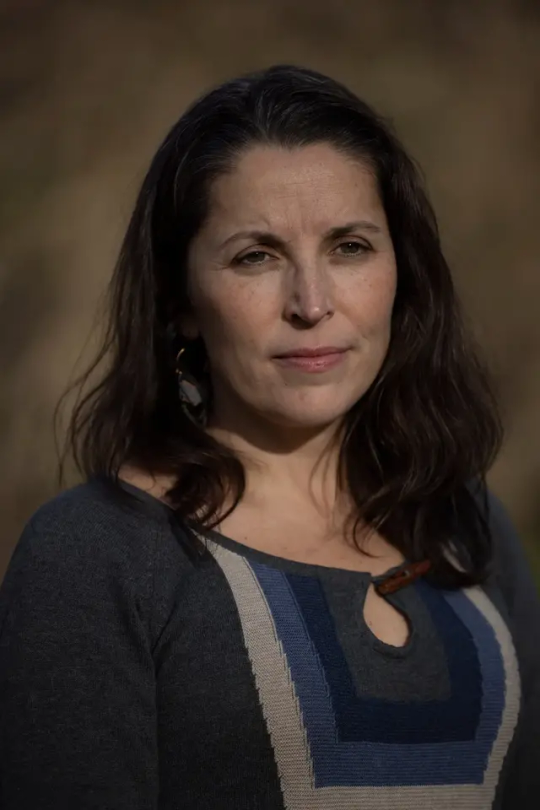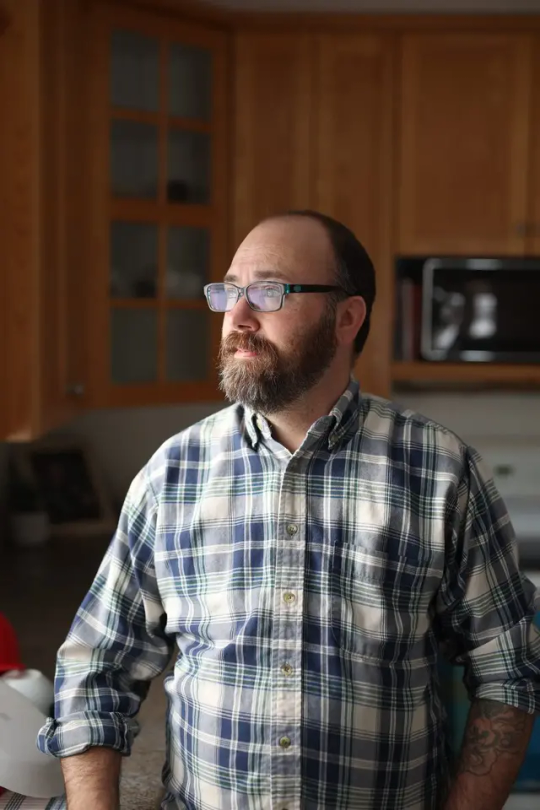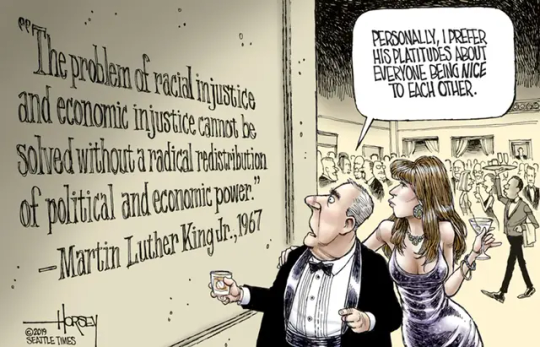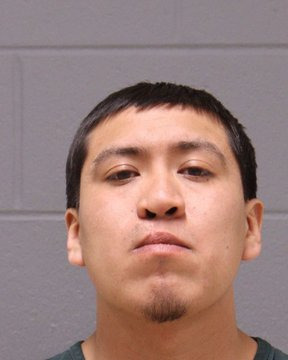#2024 grand rapids
Text
you all would’ve loved the rendition i saw yesterday.
gavroche and grantaire spent the whole show goofing around.
when eponine fell gavroche tried to run to her side but grantaire stopped him. he held him as she died and once she passed gavroche turned and buried his face in grantaire’s clothes.
after drink with me enjolras tried to comfort grantaire but he pushed him away. instead it was gavroche, who went to his side and pulled him away from the wall. gavroche eventually fell asleep with his head on grantaire’s shoulder.
when gavroche was shot at the top of the barricade, enjolras was holding the front of his shirt. he caught the boys body in his arms as he fell then slowly turned around and handed him off to grantaire. as the fighting raged on, grantaire stood center stage, holding the boy, staring at him. he eventually made his way off to the side where he collapsed to his knees and just held him, shaking his head, shaking gavroche, then just staring at his face.
cannon fire dropped enjolras to the ground and grantaire crawled to his side, begging him to stay. enjolras shoved him to the ground and climbed back up, grabbing a flag. as bullets made enjolras fall once more, grantaire kissed gavroche on the head, grabbed a bottle, and climbed to the top of the barricade. it looked like he tried to grab the flag but didn’t make it. he was the last to die.
these actors were incredible. i spent every scene he was in watching grantaire on the sidelines, either goofing off with gavroche or staring at enjolras. i was delighted at how they embodied these characters and the clear love grantaire had for enjolras. even from the back of the balcony, it was clear where grantaire was staring.
it was my first time seeing the show in person and i hope i have many more opportunities. but i don’t know if anyone will beat them. devin archer and kyle adams were the perfect e/r.
#les mis#les mierables#enjolras#grantaire#gavroche#eponine#2024 grand rapids#broadway#enjoltaire#us tour
236 notes
·
View notes
Text

ahl all-star game 2/4/24
11 notes
·
View notes
Text

adi endorses the true mayor of gr
5 notes
·
View notes
Text
Recap Grand Rapids 11-03-2024
Prosegue il Life is but a Dream… American Tour che ha fatto ieri tappa a Grand Rapids in Michigan dove la band da diversi anni porta avanti la tradizione di indossare alcune parrucche durante una canzone della setlist. Ieri sera lo hanno fatto su Unholy Confessions!
La scaletta non ha subito variazioni ed è sempre quella:
Game Over
Mattel
Afterlife
Hail to the King
We love you
Shepherd of…

View On WordPress
#a7x#avenged sevenfold#Grand Rapids#life is but a dream#Live#Michigan#recap#scaletta#setlist#tour 2024#Tour americano
2 notes
·
View notes
Text
Map: City of Detroit Employee Disclosures by ZIP Code 2022
When the Detroit Free Press published their extensive PDF list of FOIAed disclosure statements from City of Detroit senior employees, Directors, Deputy Directors, Chiefs, and similar senior roles, I was fascinated by how little information was included in those disclosures as well as the wide range of regional home addresses.
I present here and close the case for regional transit. The residence…

View On WordPress
#2022#2024#cartography#City of Detroit#data#Dayton#Detroit#Detroit Free Press#disclosure#Eaton Rapids#FOIA#geography#Grand Blanc#map
0 notes
Text
Anyone with opinions from an artist's perspective on Grand Rapids, Michigan's Art Prize festival??
I'm currently debating registering a piece and while the application fee is affordable, custom framing and matting a print is a bit pricey (for me).
#grand rapids art prize#grand rapids#michigan#grand rapids michigan#grand rapids art prize 2024#art prize#photography#nature photography#michigan photographer#michigan photography#landscape photography#opinions please
0 notes
Text
Holy shit, the New York Times is FINALLY interviewing and listening to detransistioners.
The tide is turning.
Opinion by Pamela Paul
As Kids, They Thought They Were Trans. They No Longer Do.
Feb. 2, 2024

Grace Powell was 12 or 13 when she discovered she could be a boy.
Growing up in a relatively conservative community in Grand Rapids, Mich., Powell, like many teenagers, didn’t feel comfortable in her own skin. She was unpopular and frequently bullied. Puberty made everything worse. She suffered from depression and was in and out of therapy.
“I felt so detached from my body, and the way it was developing felt hostile to me,” Powell told me. It was classic gender dysphoria, a feeling of discomfort with your sex.
Reading about transgender people online, Powell believed that the reason she didn’t feel comfortable in her body was that she was in the wrong body. Transitioning seemed like the obvious solution. The narrative she had heard and absorbed was that if you don’t transition, you’ll kill yourself.
At 17, desperate to begin hormone therapy, Powell broke the news to her parents. They sent her to a gender specialist to make sure she was serious. In the fall of her senior year of high school, she started cross-sex hormones. She had a double mastectomy the summer before college, then went off as a transgender man named Grayson to Sarah Lawrence College, where she was paired with a male roommate on a men’s floor. At 5-foot-3, she felt she came across as a very effeminate gay man.
At no point during her medical or surgical transition, Powell says, did anyone ask her about the reasons behind her gender dysphoria or her depression. At no point was she asked about her sexual orientation. And at no point was she asked about any previous trauma, and so neither the therapists nor the doctors ever learned that she’d been sexually abused as a child.
“I wish there had been more open conversations,” Powell, now 23 and detransitioned, told me. “But I was told there is one cure and one thing to do if this is your problem, and this will help you.”
Progressives often portray the heated debate over childhood transgender care as a clash between those who are trying to help growing numbers of children express what they believe their genders to be and conservative politicians who won’t let kids be themselves.
But right-wing demagogues are not the only ones who have inflamed this debate. Transgender activists have pushed their own ideological extremism, especially by pressing for a treatment orthodoxy that has faced increased scrutiny in recent years. Under that model of care, clinicians are expected to affirm a young person’s assertion of gender identity and even provide medical treatment before, or even without, exploring other possible sources of distress.
Many who think there needs to be a more cautious approach — including well-meaning liberal parents, doctors and people who have undergone gender transition and subsequently regretted their procedures — have been attacked as anti-trans and intimidated into silencing their concerns.
And while Donald Trump denounces “left-wing gender insanity” and many trans activists describe any opposition as transphobic, parents in America’s vast ideological middle can find little dispassionate discussion of the genuine risks or trade-offs involved in what proponents call gender-affirming care.
Powell’s story shows how easy it is for young people to get caught up by the pull of ideology in this atmosphere.
“What should be a medical and psychological issue has been morphed into a political one,” Powell lamented during our conversation. “It’s a mess.”
A New and Growing Group of Patients
Many transgender adults are happy with their transitions and, whether they began to transition as adults or adolescents, feel it was life changing, even lifesaving. The small but rapidly growing number of children who express gender dysphoria and who transition at an early age, according to clinicians, is a recent and more controversial phenomenon.
Laura Edwards-Leeper, the founding psychologist of the first pediatric gender clinic in the United States, said that when she started her practice in 2007, most of her patients had longstanding and deep-seated gender dysphoria. Transitioning clearly made sense for almost all of them, and any mental health issues they had were generally resolved through gender transition.
“But that is just not the case anymore,” she told me recently. While she doesn’t regret transitioning the earlier cohort of patients and opposes government bans on transgender medical care, she said, “As far as I can tell, there are no professional organizations who are stepping in to regulate what’s going on.”

Most of her patients now, she said, have no history of childhood gender dysphoria. Others refer to this phenomenon, with some controversy, as rapid onset gender dysphoria, in which adolescents, particularly tween and teenage girls, express gender dysphoria despite never having done so when they were younger. Frequently, they have mental health issues unrelated to gender. While professional associations say there is a lack of quality research on rapid onset gender dysphoria, several researchers have documented the phenomenon, and many health care providers have seen evidence of it in their practices.
“The population has changed drastically,” said Edwards-Leeper, a former head of the Child and Adolescent Committee for the World Professional Association for Transgender Health, the organization responsible for setting gender transition guidelines for medical professionals.
For these young people, she told me, “you have to take time to really assess what’s going on and hear the timeline and get the parents’ perspective in order to create an individualized treatment plan. Many providers are completely missing that step.”
Yet those health care professionals and scientists who do not think clinicians should automatically agree to a young person’s self-diagnosis are often afraid to speak out. A report commissioned by the National Health Service about Britain’s Tavistock gender clinic, which, until it was ordered to be shut down, was the country’s only health center dedicated to gender identity, noted that “primary and secondary care staff have told us that they feel under pressure to adopt an unquestioning affirmative approach and that this is at odds with the standard process of clinical assessment and diagnosis that they have been trained to undertake in all other clinical encounters.”
Of the dozens of students she’s trained as psychologists, Edwards-Leeper said, few still seem to be providing gender-related care. While her students have left the field for various reasons, “some have told me that they didn’t feel they could continue because of the pushback, the accusations of being transphobic, from being pro-assessment and wanting a more thorough process,” she said.
They have good reasons to be wary. Stephanie Winn, a licensed marriage and family therapist in Oregon, was trained in gender-affirming care and treated multiple transgender patients. But in 2020, after coming across detransition videos online, she began to doubt the gender-affirming model. In 2021 she spoke out in favor of approaching gender dysphoria in a more considered way, urging others in the field to pay attention to detransitioners, people who no longer consider themselves transgender after undergoing medical or surgical interventions. She has since been attacked by transgender activists. Some threatened to send complaints to her licensing board saying that she was trying to make trans kids change their minds through conversion therapy.
In April 2022, the Oregon Board of Licensed Professional Counselors and Therapists told Winn that she was under investigation. Her case was ultimately dismissed, but Winn no longer treats minors and practices only online, where many of her patients are worried parents of trans-identifying children.
“I don’t feel safe having a location where people can find me,” she said.
Detransitioners say that only conservative media outlets seem interested in telling their stories, which has left them open to attacks as hapless tools of the right, something that frustrated and dismayed every detransitioner I interviewed. These are people who were once the trans-identified kids that so many organizations say they’re trying to protect — but when they change their minds, they say, they feel abandoned.
Most parents and clinicians are simply trying to do what they think is best for the children involved. But parents with qualms about the current model of care are frustrated by what they see as a lack of options.
Parents told me it was a struggle to balance the desire to compassionately support a child with gender dysphoria while seeking the best psychological and medical care. Many believed their kids were gay or dealing with an array of complicated issues. But all said they felt compelled by gender clinicians, doctors, schools and social pressure to accede to their child’s declared gender identity even if they had serious doubts. They feared it would tear apart their family if they didn’t unquestioningly support social transition and medical treatment. All asked to speak anonymously, so desperate were they to maintain or repair any relationship with their children, some of whom were currently estranged.
Several of those who questioned their child’s self-diagnosis told me it had ruined their relationship. A few parents said simply, “I feel like I’ve lost my daughter.”
One mother described a meeting with 12 other parents in a support group for relatives of trans-identified youth where all of the participants described their children as autistic or otherwise neurodivergent. To all questions, the woman running the meeting replied, “Just let them transition.” The mother left in shock. How would hormones help a child with obsessive-compulsive disorder or depression? she wondered.
Some parents have found refuge in anonymous online support groups. There, people share tips on finding caregivers who will explore the causes of their children’s distress or tend to their overall emotional and developmental health and well-being without automatically acceding to their children’s self-diagnosis.
Many parents of kids who consider themselves trans say their children were introduced to transgender influencers on YouTube or TikTok, a phenomenon intensified for some by the isolation and online cocoon of Covid. Others say their kids learned these ideas in the classroom, as early as elementary school, often in child-friendly ways through curriculums supplied by trans rights organizations, with concepts like the gender unicorn or the Genderbread person.
‘Do You Want a Dead Son or a Live Daughter?’
After Kathleen’s 15-year-old son, whom she described as an obsessive child, abruptly told his parents he was trans, the doctor who was going to assess whether he had A.D.H.D. referred him instead to someone who specialized in both A.D.H.D. and gender. Kathleen, who asked to be identified only by her first name to protect her son’s privacy, assumed that the specialist would do some kind of evaluation or assessment. That was not the case.
The meeting was brief and began on a shocking note. “In front of my son, the therapist said, ‘Do you want a dead son or a live daughter?’” Kathleen recounted.
Parents are routinely warned that to pursue any path outside of agreeing with a child’s self-declared gender identity is to put a gender dysphoric youth at risk for suicide, which feels to many people like emotional blackmail. Proponents of the gender-affirming model have cited studies showing an association between that standard of care and a lower risk of suicide. But those studies were found to have methodological flaws or have been deemed not entirely conclusive. A survey of studies on the psychological effects of cross-sex hormones, published three years ago in The Journal of the Endocrine Society, the professional organization for hormone specialists, found it “could not draw any conclusions about death by suicide.” In a letter to The Wall Street Journal last year, 21 experts from nine countries said that survey was one reason they believed there was “no reliable evidence to suggest that hormonal transition is an effective suicide prevention measure.”
Moreover, the incidence of suicidal thoughts and attempts among gender dysphoric youth is complicated by the high incidence of accompanying conditions, such as autism spectrum disorder. As one systematic overview put it, “Children with gender dysphoria often experience a range of psychiatric comorbidities, with a high prevalence of mood and anxiety disorders, trauma, eating disorders and autism spectrum conditions, suicidality and self-harm.”
But rather than being treated as patients who deserve unbiased professional help, children with gender dysphoria often become political pawns.
Conservative lawmakers are working to ban access to gender care for minors and occasionally for adults as well. On the other side, however, many medical and mental health practitioners feel their hands have been tied by activist pressure and organizational capture. They say that it has become difficult to practice responsible mental health care or medicine for these young people.
Pediatricians, psychologists and other clinicians who dissent from this orthodoxy, believing that it is not based on reliable evidence, feel frustrated by their professional organizations. The American Psychological Association, American Psychiatric Association and the American Academy of Pediatrics have wholeheartedly backed the gender-affirming model.
In 2021, Aaron Kimberly, a 50-year-old trans man and registered nurse, left the clinic in British Columbia where his job focused on the intake and assessment of gender-dysphoric youth. Kimberly received a comprehensive screening when he embarked on his own successful transition at age 33, which resolved the gender dysphoria he experienced from an early age.
But when the gender-affirming model was introduced at his clinic, he was instructed to support the initiation of hormone treatment for incoming patients regardless of whether they had complex mental problems, experiences with trauma or were otherwise “severely unwell,” Kimberly said. When he referred patients for further mental health care rather than immediate hormone treatment, he said he was accused of what they called gatekeeping and had to change jobs.
“I realized something had gone totally off the rails,” Kimberly, who subsequently founded the Gender Dysphoria Alliance and the L.G.B.T. Courage Coalition to advocate better gender care, told me.

Gay men and women often told me they fear that same-sex-attracted kids, especially effeminate boys and tomboy girls who are gender nonconforming, will be transitioned during a normal phase of childhood and before sexual maturation — and that gender ideology can mask and even abet homophobia.
As one detransitioned man, now in a gay relationship, put it, “I was a gay man pumped up to look like a woman and dated a lesbian who was pumped up to look like a man. If that’s not conversion therapy, I don’t know what is.”
“I transitioned because I didn’t want to be gay,” Kasey Emerick, a 23-year-old woman and detransitioner from Pennsylvania, told me. Raised in a conservative Christian church, she said, “I believed homosexuality was a sin.”
When she was 15, Emerick confessed her homosexuality to her mother. Her mother attributed her sexual orientation to trauma — Emerick’s father was convicted of raping and assaulting her repeatedly when she was between the ages of 4 and 7 — but after catching Emerick texting with another girl at age 16, she took away her phone. When Emerick melted down, her mother admitted her to a psychiatric hospital. While there, Emerick told herself, “If I was a boy, none of this would have happened.”
In May 2017, Emerick began searching “gender” online and encountered trans advocacy websites. After realizing she could “pick the other side,” she told her mother, “I’m sick of being called a dyke and not a real girl.” If she were a man, she’d be free to pursue relationships with women.
That September, she and her mother met with a licensed professional counselor for the first of two 90-minute consultations. She told the counselor that she had wished to be a Boy Scout rather than a Girl Scout. She said she didn’t like being gay or a butch lesbian. She also told the counselor that she had suffered from anxiety, depression and suicidal ideation. The clinic recommended testosterone, which was prescribed by a nearby L.G.B.T.Q. health clinic. Shortly thereafter, she was also diagnosed with A.D.H.D. She developed panic attacks. At age 17, she was cleared for a double mastectomy.
“I’m thinking, ‘Oh my God, I’m having my breasts removed. I’m 17. I’m too young for this,’” she recalled. But she went ahead with the operation.
“Transition felt like a way to control something when I couldn’t control anything in my life,” Emerick explained. But after living as a trans man for five years, Emerick realized her mental health symptoms were only getting worse. In the fall of 2022, she came out as a detransitioner on Twitter and was immediately attacked. Transgender influencers told her she was bald and ugly. She received multiple threats.
“I thought my life was over,” she said. “I realized that I had lived a lie for over five years.”

Today Emerick’s voice, permanently altered by testosterone, is that of a man. When she tells people she’s a detransitioner, they ask when she plans to stop taking T and live as a woman. “I’ve been off it for a year,” she replies.
Once, after she recounted her story to a therapist, the therapist tried to reassure her. If it’s any consolation, the therapist remarked, “I would never have guessed that you were once a trans woman.” Emerick replied, “Wait, what sex do you think I am?”
To the trans activist dictum that children know their gender best, it is important to add something all parents know from experience: Children change their minds all the time. One mother told me that after her teenage son desisted — pulled back from a trans identity before any irreversible medical procedures — he explained, “I was just rebelling. I look at it like a subculture, like being goth.”
“The job of children and adolescents is to experiment and explore where they fit into the world, and a big part of that exploration, especially during adolescence, is around their sense of identity,” Sasha Ayad, a licensed professional counselor based in Phoenix, told me. “Children at that age often present with a great deal of certainty and urgency about who they believe they are at the time and things they would like to do in order to enact that sense of identity.”
Ayad, a co-author of “When Kids Say They’re Trans: A Guide for Thoughtful Parents,” advises parents to be wary of the gender affirmation model. “We’ve always known that adolescents are particularly malleable in relationship to their peers and their social context and that exploration is often an attempt to navigate difficulties of that stage, such as puberty, coming to terms with the responsibilities and complications of young adulthood, romance and solidifying their sexual orientation,” she told me. For providing this kind of exploratory approach in her own practice with gender dysphoric youth, Ayad has had her license challenged twice, both times by adults who were not her patients. Both times, the charges were dismissed.
Studies show that around eight in 10 cases of childhood gender dysphoria resolve themselves by puberty and 30 percent of people on hormone therapy discontinue its use within four years, though the effects, including infertility, are often irreversible.
Proponents of early social transition and medical interventions for gender dysphoric youth cite a 2022 study showing that 98 percent of children who took both puberty blockers and cross-sex hormones continued treatment for short periods, and another study that tracked 317 children who socially transitioned between the ages of 3 and 12, which found that 94 percent of them still identified as transgender five years later. But such early interventions may cement children’s self-conceptions without giving them time to think or sexually mature.
‘The Process of Transition Didn’t Make Me Feel Better’
At the end of her freshman year of college, Grace Powell, horrifically depressed, began dissociating, feeling detached from her body and from reality, which had never happened to her before. Ultimately, she said, “the process of transition didn’t make me feel better. It magnified what I found was wrong with myself.”
“I expected it to change everything, but I was just me, with a slightly deeper voice,” she added. “It took me two years to start detransitioning and living as Grace again.”
She tried in vain to find a therapist who would treat her underlying issues, but they kept asking her: How do you want to be seen? Do you want to be nonbinary? Powell wanted to talk about her trauma, not her identity or her gender presentation. She ended up getting online therapy from a former employee of the Tavistock clinic in Britain. This therapist, a woman who has broken from the gender-affirming model, talked Grace through what she sees as her failure to launch and her efforts to reset. The therapist asked questions like: Who is Grace? What do you want from your life? For the first time, Powell felt someone was seeing and helping her as a person, not simply looking to slot her into an identity category.
Many detransitioners say they face ostracism and silencing because of the toxic politics around transgender issues.
“It is extraordinarily frustrating to feel that something I am is inherently political,” Powell told me. “I’ve been accused multiple times that I’m some right-winger who’s making a fake narrative to discredit transgender people, which is just crazy.”
While she believes there are people who benefit from transitioning, “I wish more people would understand that there’s not a one-size-fits-all solution,” she said. “I wish we could have that conversation.”
In a recent study in The Archives of Sexual Behavior, about 40 young detransitioners out of 78 surveyed said they had suffered from rapid onset gender dysphoria. Trans activists have fought hard to suppress any discussion of rapid onset gender dysphoria, despite evidence that the condition is real. In its guide for journalists, the activist organization GLAAD warns the media against using the term, as it is not “a formal condition or diagnosis.” Human Rights Campaign, another activist group, calls it “a right-wing theory.” A group of professional organizations put out a statement urging clinicians to eliminate the term from use.
Nobody knows how many young people desist after social, medical or surgical transitions. Trans activists often cite low regret rates for gender transition, along with low figures for detransition. But those studies, which often rely on self-reported cases to gender clinics, likely understate the actual numbers. None of the seven detransitioners I interviewed, for instance, even considered reporting back to the gender clinics that prescribed them medication they now consider to have been a mistake. Nor did they know any other detransitioners who had done so.
As Americans furiously debate the basis of transgender care, a number of advances in understanding have taken place in Europe, where the early Dutch studies that became the underpinning of gender-affirming care have been broadly questioned and criticized. Unlike some of the current population of gender dysphoric youth, the Dutch study participants had no serious psychological conditions. Those studies were riddled with methodological flaws and weaknesses. There was no evidence that any intervention was lifesaving. There was no long-term follow-up with any of the study’s 55 participants or the 15 who dropped out. A British effort to replicate the study said that it “identified no changes in psychological function” and that more studies were needed.
In countries like Sweden, Norway, France, the Netherlands and Britain — long considered exemplars of gender progress — medical professionals have recognized that early research on medical interventions for childhood gender dysphoria was either faulty or incomplete. Last month, the World Health Organization, in explaining why it is developing “a guideline on the health of trans and gender diverse people,” said it will cover only adults because “the evidence base for children and adolescents is limited and variable regarding the longer-term outcomes of gender-affirming care for children and adolescents.”
But in America, and Canada, the results of those widely criticized Dutch studies are falsely presented to the public as settled science.
Other countries have recently halted or limited the medical and surgical treatment of gender dysphoric youth, pending further study. Britain’s Tavistock clinic was ordered to be shut down next month, after a National Health Service-commissioned investigation found deficiencies in service and “a lack of consensus and open discussion about the nature of gender dysphoria and therefore about the appropriate clinical response.”
Meanwhile, the American medical establishment has hunkered down, stuck in an outdated model of gender affirmation. The American Academy of Pediatrics only recently agreed to conduct more research in response to yearslong efforts by dissenting experts, including Dr. Julia Mason, a self-described “bleeding-heart liberal.”
The larger threat to transgender people comes from Republicans who wish to deny them rights and protections. But the doctrinal rigidity of the progressive wing of the Democratic Party is disappointing, frustrating and counterproductive.
“I was always a liberal Democrat,” one woman whose son desisted after social transition and hormone therapy told me. “Now I feel politically homeless.”
She noted that the Biden administration has “unequivocally” supported gender-affirming care for minors, in cases in which it deems it “medically appropriate and necessary.” Rachel Levine, the assistant secretary for health at the U.S. Department of Health and Human Services, told NPR in 2022 that “there is no argument among medical professionals — pediatricians, pediatric endocrinologists, adolescent medicine physicians, adolescent psychiatrists, psychologists, et cetera — about the value and the importance of gender-affirming care.”
Of course, politics should not influence medical practice, whether the issue is birth control, abortion or gender medicine. But unfortunately, politics has gotten in the way of progress. Last year The Economist published a thorough investigation into America’s approach to gender medicine. Zanny Minton Beddoes, the editor, put the issue into political context. “If you look internationally at countries in Europe, the U.K. included, their medical establishments are much more concerned,” Beddoes told Vanity Fair. “But here — in part because this has become wrapped up in the culture wars where you have, you know, crazy extremes from the Republican right — if you want to be an upstanding liberal, you feel like you can’t say anything.”
Some people are trying to open up that dialogue, or at least provide outlets for kids and families to seek a more therapeutic approach to gender dysphoria.
Paul Garcia-Ryan is a psychotherapist in New York who cares for kids and families seeking holistic, exploratory care for gender dysphoria. He is also a detransitioner who from ages 15 to 30 fully believed he was a woman.
Garcia-Ryan is gay, but as a boy, he said, “it was much less threatening to my psyche to think that I was a straight girl born into the wrong body — that I had a medical condition that could be tended to.” When he visited a clinic at 15, the clinician immediately affirmed he was female, and rather than explore the reasons for his mental distress, simply confirmed Garcia-Ryan’s belief that he was not meant to be a man.
Once in college, he began medically transitioning and eventually had surgery on his genitals. Severe medical complications from both the surgery and hormone medication led him to reconsider what he had done, and to detransition. He also reconsidered the basis of gender affirmation, which, as a licensed clinical social worker at a gender clinic, he had been trained in and provided to clients.
“You’re made to believe these slogans,” he said. “Evidence-based, lifesaving care, safe and effective, medically necessary, the science is settled — and none of that is evidence based.”

Garcia-Ryan, 32, is now the board president of Therapy First, an organization that supports therapists who do not agree with the gender affirmation model. He thinks transition can help some people manage the symptoms of gender dysphoria but no longer believes anyone under 25 should socially, medically or surgically transition without exploratory psychotherapy first.
“When a professional affirms a gender identity for a younger person, what they are doing is implementing a psychological intervention that narrows a person’s sense of self and closes off their options for considering what’s possible for them,” Garcia-Ryan told me.
Instead of promoting unproven treatments for children, which surveys show many Americans are uncomfortable with, transgender activists would be more effective if they focused on a shared agenda. Most Americans across the political spectrum can agree on the need for legal protections for transgender adults. They would also probably support additional research on the needs of young people reporting gender dysphoria so that kids could get the best treatment possible.
A shift in this direction would model tolerance and acceptance. It would prioritize compassion over demonization. It would require rising above culture-war politics and returning to reason. It would be the most humane path forward. And it would be the right thing to do.
*~*~*~*~*~*
For those who want tor ead more by those fighting the cancellation forquestioning, read:
Graham Lineham, who's been fighting since the beginning and paid the price, but is not seeing things turn around.
The Glinner Update, Grahan Linehan's Substack.
Kellie-Jay Keen @ThePosieParker, who's been physically attacked for organizing events for women demanding women-only spaces.
REDUXX, Feminst news & opinion.
Gays Against Groomers @againstgrmrs, A nonprofit of gay people and others within the community against the sexualization, indoctrination and medicalization of children under the guise of "LGBTQIA+"
#detransitioners#detransition#gender critical#New York Times#gays#lesbians#trans#trans insanity#long post#article#detrans#transgender#post trans#desisted
685 notes
·
View notes
Text
Not now, not ever - Lewis Hamilton

pairing: Lewis Hamilton x Reader!
summary: Having her pressed to him brought back how important she's been to keep him grounded.
warnings: Angst, Mercedes 2024, Monza 21'.
wordcount: +1K
a/n: Hello everyone, I felt like angsty was in order. Sorry to bring that accident 😶, but yeah, hope you guys enjoy it!
As always, I'm open for feedback, come say hi!
______________________________________________________________
Defeated and exhausted, that was Lewis scotched in his airplane seat with you tangled in his arms, asleep beside him. The flight back to the UK after a disastrous Japanese Grand Prix held all the weight of the race, the frustration of the poor performance, and the uncertainty of his future with Mercedes weighing heavily on him.
Gently cradling you in his arms, Lewis pressed his face into your hair, breathing in your scent, finding solace in the familiarity and warmth of your presence. His fingers lightly traced the contours of your back, feeling the steady rhythm of your heartbeat against his chest. Holding you like this; he felt a fleeting moment of peace amidst the storm of emotions and uncertainties that surrounded him. He whispered softly, barely audible above the hum of the airplane engine, " Thank you for always being there for me, even when I'm at my lowest”
He held you close, drawing comfort from your presence, knowing that whatever happened, you had been through much worse and had always stood strong together. As he looked down to your sleeping figure, the scene brought back a nagging memory on repeat, a night back in 2021, when you had comforted him after a nightmare. Now, as much as back then, you were his anchor, his safe haven amidst the chaos and uncertainty.
You were jolted awake when his entire body lurched, causing him to drop you abruptly onto the mattress. His breathing was rapid, coming out in sharp puffs as he hid his face in his hands, his shoulders tense under your arms as you held him from behind. You waited patiently, holding him until his breathing began to even out. Eventually, he turned to you, fear evident in his eyes. Without a word, you pulled him into your embrace, running your fingers through his braids and soothing the tension in his arms.
You had never seen that happen to him – that nightmarish episode that left a haunting impression. It had been two days from the crash with Verstappen in Monza. You'd traveled with him to NYC under the pretense of having an important. No one knew about the two of you yet. A few stolen moments here and there, and nights tangled in each other were all you had. He returned to his penthouse almost at dawn after the Met Gala, quietly ushering you from the bedroom you were occupying to his own bed. His friends, drunk from the after party, were oblivious to the fact that your supposed meeting was just a cover-up. The real reason you were there was that you couldn't bear to be apart from him after that crash.
Hours seemed to pass without either of you uttering a single word. The mere press of each other’s bodies was enough to ground you both. By the time Daniel knocked on the door to let him know they were headed out and assumed you hadn’t spent the night, it was well past noon. Little did he know, you had been there the whole time and would continue to be there for the rest of the day.
Lewis had witnessed similar episodes with you, most often triggered by situations related to Ayrton. Sometimes it manifested as restlessness, with you tossing and turning in bed. But on other occasions, it was far more severe. You'd wake up cold, tears streaming down your face, a scream caught in your throat, and a deafening ringing in your ears.
When these episodes occurred, Lewis knew exactly what to do. He would hold you tightly, his fingers lightly tracing your skin and scalp, while he repeated reassuring words over and over. And when you finally became aware of your surroundings, he'd listen attentively as you spoke about whatever had triggered the nightmare, comforting you until you fell back asleep in his arms.
As the sun began to set, casting a hauntingly beautiful golden hue through the penthouse windows, you went to find some food, Lewis hot on your feet, taking any opportunity to find himself wrapped in your arms. His arms securely around you, his fingers gently tracing patterns on your back as you leaned into him even while you waited for the stove to warm up the takeout from the previous night. The events of the day had left both of you emotionally drained, the scars of the past resurfacing with a vengeance.
The weight of the nightmare and fear of the unknown had taken its toll on both of you. The emotional strain was palpable, the shadows of past traumas lingering in the corners of your minds, waiting to strike when least expected. "You don't have to go through this alone, you know," you whispered, your voice filled with genuine concern. "I'm always here for you, no matter what."
He looked at you, his eyes filled with a mixture of gratitude, love, and pain. "And I'm here for you" his voice softly reassuring you “Always."
Lewis smiled, but it didn't quite reach his eyes. He pulled you closer to him, cherishing the moment of fragile peace and understanding between you. The bond you shared was unique, built on trust, understanding, and unconditional love. Despite the challenges and nightmares that sometimes haunted your nights, the love and support you provided each other were unwavering.
As night fell, Lewis led you back to the bedroom, ensuring you were comfortable and safe before joining you in bed. He held you close, his presence a constant source of comfort and reassurance. You drifted off to sleep, protected and loved in the arms that secured you so tightly.
Lewis remained awake; his gaze fixed on your peaceful sleeping face. The haunting memories of the accident with Verstappen in Monza played in his mind, and a shiver ran down his spine as he thought about how close it had come to being his end.
His thoughts were consumed by the accident, the fear of losing you, and the nightmares that had been haunting both of you. The emotional strain was palpable, and tears welled up in his eyes as he continued to watch you sleep, his mind tormented by the events of the past and the shadows of the traumas you both had endured.
The room was silent except for the soft, rhythmic sound of your breathing. Lewis leaned down, pressing a gentle kiss on your forehead, his heart aching with love and fear. He whispered words of love and reassurance, hoping that somehow, you could feel his presence and know that he would always be there for you.
He tightened his grip around you, pulling you closer as if trying to protect you from the world and the nightmares. His mind was filled with what-ifs and worst-case scenarios, the weight of the past and the uncertainty of the future pressing down on him.
"We almost lost it all," he whispered to himself, his voice choked with emotion. "Gosh, I can't lose you, not now, not ever."
______________________________________________________________
TAGLIST - @saturnssunflower @xoscar03 @chocolatediplomatdreamerzonk @happy-golden-hour
If you’d like to be added to my taglist you can leave a comment or send me a dm/ask.
#lewis hamilton x reader#lewis hamilton x you#lewis hamilton imagine#lewis hamilton#f1 x reader#f1 imagine#formula 1
347 notes
·
View notes
Text

MLK at 95.
January 15, 2024
ROBERT B. HUBBELL
Martin Luther King, Jr. was born 95 years ago on January 15, 1929. As a Baptist minister, he advocated non-violence while promoting civil rights. He spoke for the poor, the oppressed, and the disenfranchised. While he was imprisoned in a Birmingham jail for protesting segregation, he responded to eight white ministers who had criticized him for participating in protests that they described as “unwise and untimely.”
Dr. King’s famous reply to the white ministers explained why he traveled to Birmingham from Atlanta to protest:
I cannot sit idly by in Atlanta and not be concerned about what happens in Birmingham. Injustice anywhere is a threat to justice everywhere. We are caught in an inescapable network of mutuality, tied in a single garment of destiny. Whatever affects one directly affects all indirectly. Never again can we afford to live with the narrow, provincial outside agitator" idea. Anyone who lives inside the United States can never be considered an outsider.
While Dr. King was keenly aware of the racism that served as the understructure of the Christian church in the old South, he would be shocked by the virulent, mean-spirited, anti-Christian message that animates many (not all) evangelical congregations in America today. They form the backbone of Donald Trump's support in Iowa and beyond. They have adopted Trump's message that treats the poor, oppressed, and disenfranchised as “outsiders” and “others” who do not belong in America.
Over the last several days, we have learned that members of the Texas National Guard physically blocked federal Border Patrol agents from responding to reports of immigrants in distress in the Rio Grande. The bodies of a mother and two children were later recovered from the river in the area where immigrants were reported to be in distress.
Texas, of course, denies that its cruel actions caused the drownings—a denial that should be viewed skeptically from a state whose governor—Greg Abbott—recently commented Texas troopers could not shoot immigrants crossing the border because the troopers would be charged with murder by the Biden administration. Texas governor criticized after comment about shooting migrants | The Texas Tribune.
Similar animus underlies the recent comments of Mississippi Governor Tate Reeves, who withdrew Mississippi from a federal program to provide food to school children during summer breaks. Governor Reeves said Mississippi withdrew from the program to fight “attempts to expand the welfare state.”
Blocking efforts to rescue a drowning mother and her children? Regretting the inability to shoot immigrants because it would be murder? Denying food to poor children out of spite? Who are these people? How do they look at themselves in the mirror?
Ninety-five years after Dr. King’s birth and fifty-five years after his death, it is difficult to believe that people who identify as upstanding members of the Christian church can support such actions.
Another section from Dr. King’s Letter from a Birmingham Jail is relevant to this moment in our nation’s history:
But the judgment of God is upon the church as never before. If the church of today does not recapture the sacrificial spirit of the early church, it will lose its authentic ring, forfeit the loyalty of millions, and be dismissed as an irrelevant social club with no meaning for the twentieth century. I meet young people every day whose disappointment with the church has risen to outright disgust.
Dr. King’s words were prophetic. See Pew Research (10/17/19) In U.S., Decline of Christianity Continues at Rapid Pace.
And, of course, as Dr. King recognized, “there are some notable exceptions” among church leaders who supported his work—just as there are exceptions today. Several readers have recommended Faithful America as an antidote to Christian nationalism. The organization’s helpful FAQ page explains why “Christian nationalism” is not Christian. See Resisting Christian Nationalism: FAQ + Resources | Faithful America.
On this day commemorating Dr. Martin Luther King Jr.’s birth, we can see how far we have come—and how much further we must go. He didn’t despair. Neither should we.
Robert B. Hubbell Newsletter
#MLK#David Horsey#political cartoons#Martin Luther King Jr#justice#equality#economic equality#Robert B. Hubbell#Robert b. Hubbell newsletter
489 notes
·
View notes
Text
2024 Conventions
I'll likely update this post as the year goes on, but since I'm doing a few new cons in different parts of the US this year, I wanted to make a post for it!
MAGfest (Jan 18-21): National Harbor, MD
Emerald City Comic Con (Feb 29-Mar 3): Seattle, WA
Anime Milwaukee (Mar 8-10): Milwaukee, WI
Indiana Comic Con (Mar 22-24) Indianapolis, IN
Who's Yer Con (Mar 29-31): Indianapolis, IN
Midwest Gaming Classic (Apr 6-7): Milwaukee, IN
Upcoming:
Pop Con Indy (Apr 26-28): Indianapolis, IN
Anime Central (May 17-19): Chicago, IL
OMG!Con (Jun 14-16): Owensboro, KY
Anime Ohio (June 21-23): Cincinnati, OH
Anime Iowa (July 26-28): Coralville, IA
Lafyette Comic Con (Oct 26): Lafayette, IN
Grand Rapids Comic Con (Nov 15-17): Grand Rapids, MI
Definitely let me know if you'll be attending any of these! :D
104 notes
·
View notes
Text

Joe Trohman on Instagram, 27/03/2024.
This is a particularly grand photo from last night’s rock and roll show in Grand Rapids.
Rolling into Pittsburgh tonight.
📸 @elliottxingham
26 notes
·
View notes
Text
@libsoftiktok
BREAKING: Brandon Ortiz-Vite, a man who is in our country illegally, was just arrested for the m*rder of 25-year-old Ruby Garcia from Michigan.
SAY HER NAME!
Ruby’s life mattered!
Her family started a gofundme to help cover funeral expenses: https://gofundme.com/f/sr9ftg-rubys-funeral…
Source: https://themidwesterner.news/2024/03/illegal-immigrant-charged-in-shooting-death-of-grand-rapids-woman/…


20 notes
·
View notes
Text
Todays rip: 27/02/2024
Beautiful Dreamer
Season 7
Featured on: The Year of Grand Dad Sound Selection [Side B]
Also on: Now That's What I Call Quality! 3
Ripped by minindo
youtube
Over the course of this month, I've been having what's best described as an inner battle with myself over which rip from the One Direction takeover of Season 7 to feature, which was really not something I was expecting when the event first began. The timeframe around 9/11 on SiIvaGunner is typically where some of the channel's most subversive and fun events happen, such as the Metal Gear Rising-themed event of Season 4 Episode 2 as described in SUNGORE, or the Not Funny Didn't Laugh day of the Season prior that gave us Sex - Steve Harvey. To just dedicate a day to One Direction instead? To me, it was a little bit of a letdown.
And then, I heard the rips. Oh LORD, the rips.
A lot of my disappointment really came from without giving it a chance, since I lacked much of any connection to One Direction as a band - like Justin Bieber in BELIEBERDANSEN, like Sean Kingston in Crazy Noisy Beautiful Girls and Take You To The Desert, these pop sensations were names I'd probably heard whispers of now and then, but didn't really have any sort of emotional connection to. But over the years, the SiIva rippers have gotten so EXCEPTIONALLY good at twisting my perception of preexisting music completely on its head through their sheer creativity and proficiency - and it was those factors that, after a LOT of rumination, has led me to pick Beautiful Dreamer as the debut rip for One Direction on the blog. To say that it blew me away would be an understatement.
Let's get the obvious out of the way first: Lucid Dreamer is a track using the 3/4ths time signature, a far less standard rhythm than the 4/4th time signature that most pop music, What Makes You Beautiful included, uses. This difference in time signatures between songs makes the mashup process far more of a challenge, and overcoming that challenge is thus a sort of accomplishment. Hoopache back in Season 1 garnered quite a bit of attention back in the day for this very reason, and time signature manipulation in general is what makes rips like He4rt4che and 4SGOR3 such fascinating listens. This isn't even to mention how Touhou music in general, and Lucid Dreamer not excluded, has a very distinctly hectic, melodically rapid-fire feel to it - one that ripper minindo has shown excellent understanding of prior with rips like Nostalgic Blood of the Gregg ~ Old Source, but now had to take to a whole new level.
With Beautiful Dreamer, minindo came out fucking swinging, and left several of his fellow SiIvaGunner members/contributors in absolute awe in the comments. "i think this rip just created a new genre", says current channel manager MtH, while the team's very own Touhou expert Princess Sylvyspirit of NIGHTMARESCAPE 〜Unrestrained HyperCam 2〜 (Final Boss Phase 2) fame declares it her favorite Touhou rip on the ENTIRE channel. Her own analysis brings up several excellent points I agree with: compared to the days of Hoopache, the adjustment to 3/4ths time done here feels incredibly seamless, with several small manual tweaks to the instrumentation of What Makes You Beautiful that obscure its 4/4ths origin incredibly well. But the most important part Sylvy points out is of course the the highlight of Beautiful Dreamer; the additions minindo made to make the rip truly go above and beyond.
Sure, the rip already bangs as a mashup on its own terms, One Direction's vocals going from a solo to a quintet with the chorus of both songs, as well as becoming pitch-shifted to Lucid Dreamer's melody at the same portion, creates a fantastic sense of buildup and energetic release, a hype that drives the first chorus - but past that chorus, the song suddenly comes to a slower-paced section. A section COMPLETELY new to Beautiful Dreamer, an addition of flavor done by minindo himself. The section is impressive in its own right, but its utilized here as another form of tension buildup for the second chorus, whereupon it practically SOARS back into the song with an added heaviness to the volume and mixing compared to the first chorus.
Again - all of this, was for an event where the expectation was One Direction mashups and melodyswaps. Beautiful Dreamer not only fulfills that goal on a baseline level, but manages to be a full-on musical journey, almost as a flex on minindo to show just how good he's gotten from his time on the channel. I don't know for sure WHY he chose One Direction Day to be when he revealed his true power to us all, but I'm immensely happy for it - it, along with a few other What Makes You Beautiful Rips that I may cover in the future, have given me a newfound affection for the song that I didn't know the event would bring me until now. Its the second-coming of the Sean Kingston effect, but with SiIva's most cracked rippers of today at the helm.
#todays siivagunner#season 7#siivagunner#siiva#minindo#one direction#1D#1direction#touhou#touhou project#touhou music#touhou 16#lucid dreamer#touhou 16.5#sumireko usami#what makes you beautiful#Youtube#Bandcamp
18 notes
·
View notes
Text
Brazil’s record dengue surge: why a vaccine campaign is unlikely to stop it
A vaccine shortage and persistent sanitation problems threaten the success of the world’s first public vaccination campaign against dengue virus.

An explosive rise in dengue cases in Brazil has health authorities on edge. In the first two months of 2024, the country registered more than one million cases of the mosquito-borne disease. That’s a record for this period — and Brazil’s dengue cases normally peak between March and May (see ‘Dengue’s early surge in Brazil’).
Factors such as climate change and rapid urban growth are fuelling the surge, which has already killed at least 214 people this year. In response to the crisis, Brazil has become the first country to roll out a public vaccination campaign against dengue.
The campaign is an important addition to the fight against dengue, scientists say. But they warn that the effort is too modest to solve the immediate crisis. “Very few people are being vaccinated. To have an impact on the rates, we would need to have mass vaccination,” says Ana Lúcia de Oliveira, an infectious-disease specialist at the Federal University of Mato Grosso do Sul in Campo Grande, Brazil. And even widespread vaccination won’t defeat the disease unless basic sanitation problems are addressed, researchers note.
Continue reading.
#brazil#brazilian politics#politics#environmental justice#dengue#vaccination#mod nise da silveira#image description in alt
9 notes
·
View notes
Text
I want to make this post in honor of Patrick Loyola, and the people of Grand Rapids Michigan.
Today, and two days ago, people of Grand Rapids marched the city in protest of police brutality. Patrick Loyola was shot and murdered by a former GRPD cop on April 4th, 2022. The former cop’s lawyers are attempting to get an appeal, which is delaying the case. We cannot forget about Patrick Loyola and this case.
Article about the April 4th 2024 protest:
Article about the April 6th 2024 protest:
Please spare the time to read these articles, they are not very long. I also encourage you to spread the word.
Black lives matter.
9 notes
·
View notes
Text
Book Review: Things We Couldn't Say by Diet Eman
Thanks to @valiantarcher for giving me this recommendation for the 2024 Book Rec Exchange!
This is the autobiography of Diet Eman, a Dutch woman who lived through the German occupation during WWII. She tells her story, interspersed with diary entries and letters, and the whole thing feels like I'm sitting in her living room in Grand Rapids (where she moved after the war), listening to an old grandma telling her tales. The book is written in such a conversational, approachable way that sucks you in, making it so easy to imagine what it must have been like to live through those harrowing years.
Diet Eman came from a Christian family, and that was one of the things I appreciated most in this book. Through the whole thing runs the current of her faith and trust in God. Even when she suffered through fear, loss, and deprivation of so many kinds, even when she angrily demanded to know why God would let so much suffering continue, she never ultimately lost her faith in God's goodness or his presence with her and faithfulness to her. That was so inspiring - and just as Diet would remind herself of all the promises God had made to His people, none of which were ever broken, now I can add Diet's story to my repertoire of all the times throughout history that God has taken care of His people. That's such a blessing.
A fun surprise is that Diet's path crossed briefly with Corrie Ten Boom's! I read The Hiding Place years ago, and it's always been a huge inspiration as well. (The story of them thanking God for the lice has always stuck with me particularly strongly - what a good reminder to give thanks in all circumstances!) Diet got involved with the underground resistance movement, gathering news from the outside world from contraband radios and then hiding Jews and helping them survive the war. Because of this work, she finally ended up getting arrested and held in prison for a while, then sent to a concentration camp - one that Corrie Ten Boom and her sister stayed at briefly before being sent to Ravensbruck. So that was a cool overlap, even though Diet didn't have a whole lot of interaction with them.
Despite the very heavy subject matter and occasional twists that felt like a punch to the gut, I also appreciated the occasional spots of humor and just...humanity that Diet put in her story. It's inspiring, encouraging, sobering, and thrilling all at once. Highly recommended, especially for those who liked The Hiding Place.
8 notes
·
View notes